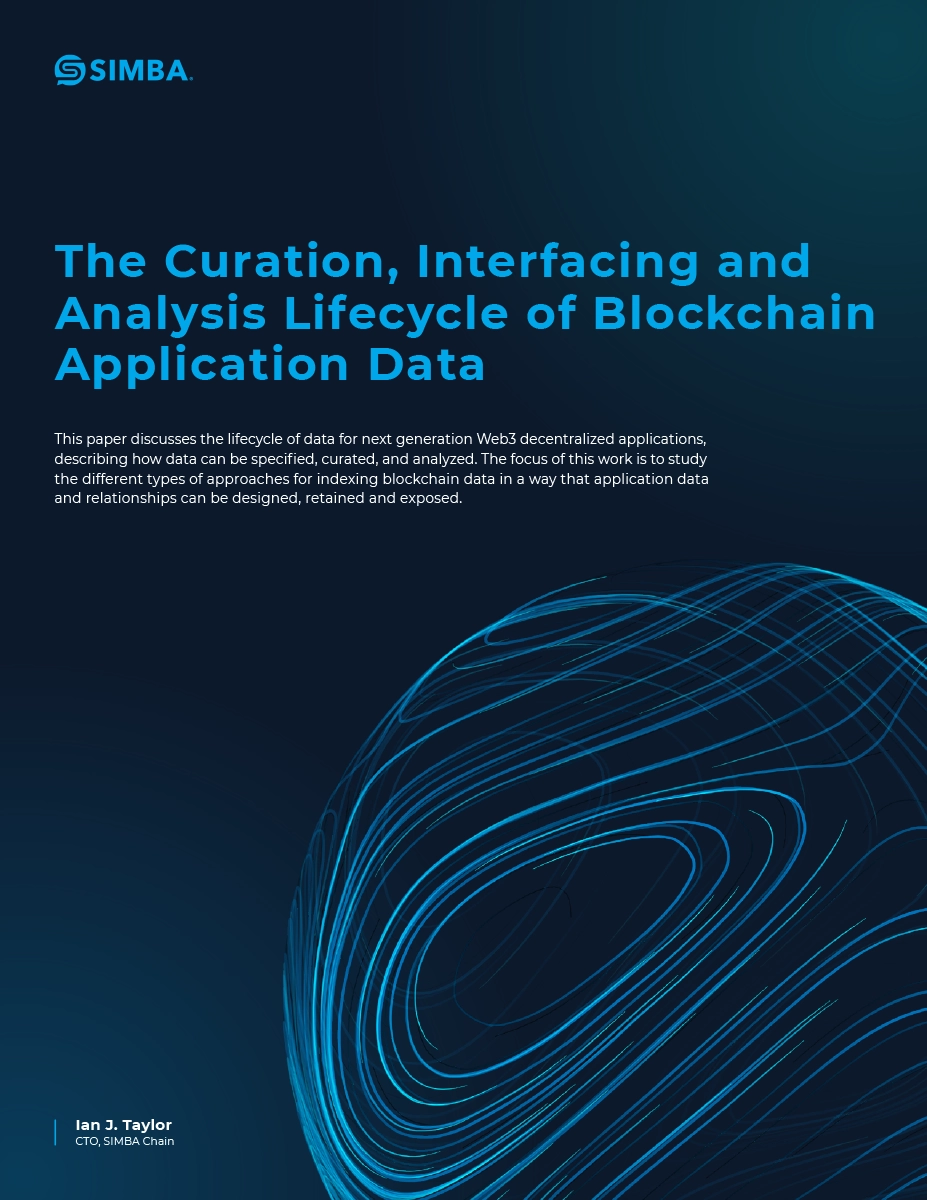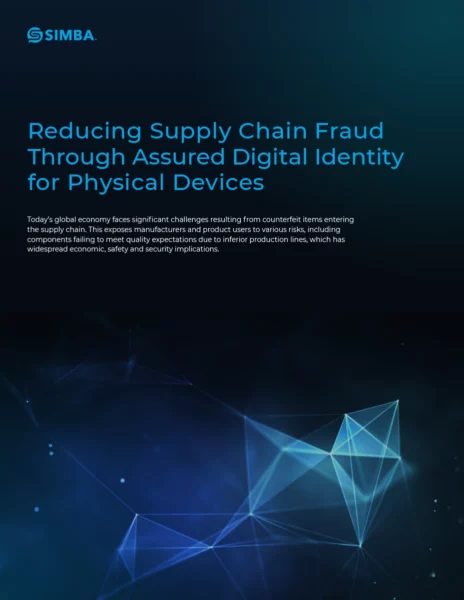This paper discusses the lifecycle of data for next generation Web3 decentralized applications, describing how data can be specified, curated, and analyzed. The focus of this work is to study the different types of approaches for indexing blockchain data in a way that application data and relationships can be designed, retained and exposed. Blockchain transactions conform to smart contracts definitions, which can have inherent structures through standards such as NFTs, but can also be designed in a custom way for bespoke use cases, Existing Web3 approaches either focus on service-based approaches that build custom pipelines that extract data in a specific way, or by creating indexes after data has been written without prior influence on how that data should be consumed.
SIMBA Chain is a platform that simplifies the management of a Web3 application’s lifecycle and takes an alternative approach by enabling design-time specification of transaction interrelationships. SIMBA enables smart contracts to annotate data relationships between smart contract methods to effectively enable schemas to be defined a priori within the source code. By using these relationships, it then autogenerates a GraphQL schema for convenient consumption. We discuss the pros and cons of such an approach and present three application use cases in coffee tracking, NFT car titles and a supply chain scenario, where the approach was extended to also connect and search data across multiple blockchains.
Read the whitepaper to learn more
About the Author

Ian Taylor
CTO and Cofounder
Prior to SIMBA, Ian Taylor served as the CTO of ASB Consulting and CIO of Energy Intelligence Worldwide Corporation, both exemplifying his wealth of knowledge in architectural design, algorithmic implementation, and technological innovation. With a strong tie to academia, Taylor holds a full research professor position at Notre Dame and a professor position at Cardiff University, UK.
Alongside his CTO role, Taylor acts as President of Cleverfish Software, offering consultancy, development and research services in the distributed computing and Web sectors. Taylor holds a BSc in Computer Science and Ph.D. in Psychoacoustics, Neural Networks and Computer Science from Cardiff University.



